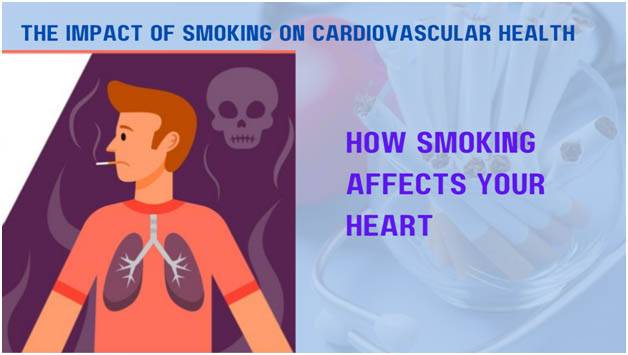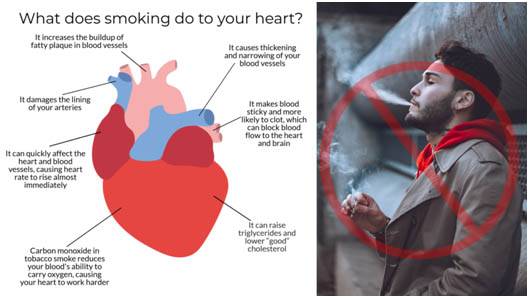
What are the Risks of Smoking and its Effects on Your Heart?
Smoking increases plaque formation in blood vessels. Coronary artery disease occurs when the arteries that supply blood to the heart muscle become narrowed by plaque or blocked by clots. Chemicals in cigarette smoke cause blood to thicken and clots form in blood vessels and veins..
Smoking increases the formation of plaque in the blood vessels. Coronary artery disease occurs when the arteries that supply blood to the heart muscle become narrowed by plaque or blocked by clots. The chemicals in cigarette smoke cause the blood to thicken and clots to form in the blood vessels and veins.
How smoking causes cardiovascular system damage
- Atherosclerosis, in which blood vessels become narrow and less flexible,
- Coronary heart disease occurs when blood vessels are blocked
- A stroke is a loss of brain function when blood flows
- Peripheral artery disease (PAD) and peripheral vascular disease occur
- An abdominal aortic aneurysm is a bulging or weakened area that occurs

How Does Cigarette Smoke Damage Your Blood Vessels?
Smoking is a major risk factor for heart disease.
The chemicals you inhale when you smoke damage your heart and blood vessels, making you more likely to develop atherosclerosis, or plaque buildup in your arteries.
Any amount of smoking, even occasional smoking, can cause this damage to the heart and blood vessels. For some people, especially women using birth control pills and people with diabetes, the risk of smoking is higher.
If you have risk factors for heart disease, such as unhealthy blood cholesterol levels, high blood pressure, and being overweight or obese, smoking further increases your risk of heart disease.
Smoking also increases the risk of peripheral arterial disease (PAD). PAD occurs when plaque builds up in the arteries that supply blood to the head, limbs, arms, and legs. People who have PAD are at increased risk of coronary heart disease, heart attack, and stroke.
Secondhand smoke is the smoke emitted when someone smokes or from the lit end of a cigarette, cigar, pipe, or other tobacco product. It can damage the heart and blood vessels of non-smokers in the same way that smoking harms people.
What is the Link Between Smoking and High Blood Pressure?
Although smoking is a proven risk factor for heart attack and stroke, its relationship with high blood pressure (HBP, or high blood pressure) is still being determined. However, both smoking and secondhand smoke exposure increase the risk of fatty deposits (plaque) building up in the arteries (atherosclerosis), a process known to increase high blood pressure. Every time you smoke, there is a temporary increase in blood pressure.
Why you should quit smoking
Smoking is the leading preventable cause of premature death in the United States. For your overall health and to reduce your risk of heart attack and stroke, avoid all forms of tobacco, as well as smoking.
If you smoke and already have heart disease, quitting reduces your risk of cardiac death, heart attacks, and death from other chronic diseases.
Consult Dr. Vaibhav Patil – best heart specialist sinhagad road pune

